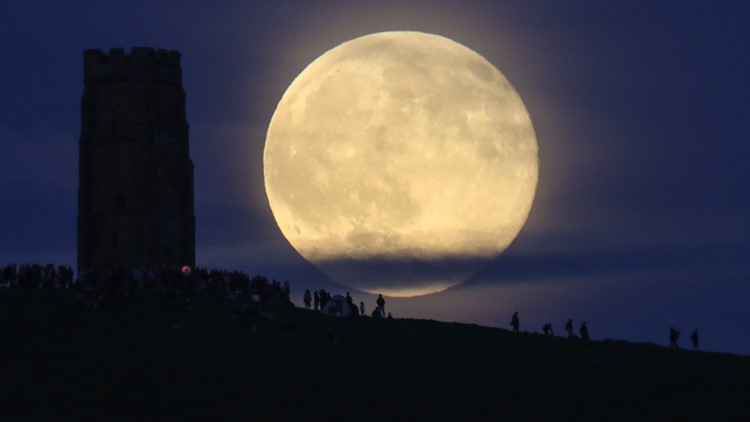Skywatchers will enjoy a double treat Wednesday night and early Thursday morning, thanks to the full "Strawberry" Moon and our closest view of Saturn this year.
June's full moon is called the Strawberry Moon because it signaled to some Native American tribes that it was the time of year to gather ripening strawberries, according to the Old Farmer's Almanac.
The Strawberry Moon is the most colorful of the year because it takes a low, shallow path across the sky, said Bob Bonadurer, director of the Milwaukee Public Museum's planetarium.
The low arc of the June full moon across the sky means moonlight must travel through more of the Earth's atmosphere, which gives it an orange or yellow tint.
The Strawberry Moon is also called Hot Moon because it's the beginning of summer and Rose Moon, Honey Moon and Hay Moon because it's the time of the first hay harvest.
Saturn is at "opposition," meaning the planet and the sun are on opposite sides of the Earth, according to NASA. That also means the ringed planet is as close to the Earth as it gets all year long.
It will also be visible with the naked eye all night long, rising in the East around sunset and slowly making its way across the sky before setting in the West around sunrise, according to AccuWeather.
You'll need a telescope to see the planet's famous rings, however, but “if you have never spotted Saturn's rings, now is your chance,” AccuWeather astronomy blogger Dave Samuhel said.
Some of Saturn's moons might also be visible with a telescope, NASA said.
Cloud-free conditions will lead to uninterrupted views of Saturn for much of the western and central U.S. on Wednesday night.
Meanwhile, clouds will obscure the night sky for many across the Northeast and down the spine of the Appalachian Mountains, as well as parts of the Pacific Northwest, according to AccuWeather.
Contributing: Meg Jones, Milwaukee Journal-Sentinel



